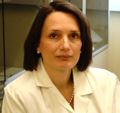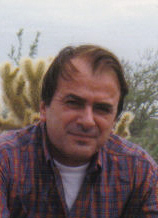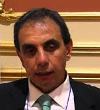Studying at the University of Verona
Here you can find information on the organisational aspects of the Programme, lecture timetables, learning activities and useful contact details for your time at the University, from enrolment to graduation.
Academic calendar
The academic calendar shows the deadlines and scheduled events that are relevant to students, teaching and technical-administrative staff of the University. Public holidays and University closures are also indicated. The academic year normally begins on 1 October each year and ends on 30 September of the following year.
Course calendar
The Academic Calendar sets out the degree programme lecture and exam timetables, as well as the relevant university closure dates..
| Period | From | To |
|---|---|---|
| 1°sem 2°anno | Oct 5, 2004 | Dec 10, 2004 |
| 1°sem 1°anno | Oct 7, 2004 | Dec 10, 2004 |
| 1°sem 3°anno | Oct 11, 2004 | Dec 14, 2004 |
| 2°sem 1°anno | Mar 7, 2005 | Apr 29, 2005 |
| 2°sem 3°anno | Mar 30, 2005 | May 13, 2005 |
| 2°sem 2°anno | Apr 18, 2005 | Jun 24, 2005 |
| Session | From | To |
|---|---|---|
| Autumn term | Dec 13, 2004 | Dec 21, 2004 |
| February Session 1st year | Jan 17, 2005 | Feb 11, 2005 |
| February Session 2nd-3rd years | Feb 14, 2005 | Mar 11, 2005 |
| July Session 1st year | Jun 27, 2005 | Jul 29, 2005 |
| July Session 2nd-3rd years | Jul 4, 2005 | Jul 29, 2005 |
| September Session 1st-2nd-3rd years | Sep 1, 2005 | Sep 30, 2005 |
| Apprenticeship Exam 1st year | Sep 21, 2005 | Sep 23, 2005 |
| Apprenticeship Exam 2nd year | Oct 3, 2005 | Oct 5, 2005 |
| Apprenticeship Exam 3rd year | Oct 18, 2005 | Oct 21, 2005 |
| Session | From | To |
|---|---|---|
| Final exam November session: practical test | Nov 24, 2005 | Nov 24, 2005 |
| Final exam November session: Discussion of thesis | Dec 6, 2005 | Dec 13, 2005 |
| Period | From | To |
|---|---|---|
| Christmas holidays | Dec 22, 2004 | Jan 6, 2005 |
| Easter holidays | Mar 24, 2005 | Mar 29, 2005 |
| Summer holidays | Jul 25, 2005 | Aug 31, 2005 |
| Description | Period | From | To |
|---|---|---|---|
| 1st year 1st sem. | tirocinio | Feb 14, 2005 | Mar 4, 2005 |
Exam calendar
To view all the exam sessions available, please use the Exam dashboard on ESSE3. If you forgot your login details or have problems logging in, please contact the relevant IT HelpDesk, or check the login details recovery web page.
Academic staff
 carolina.bicego@virgilio.it
carolina.bicego@virgilio.it

Cornaglia Giuseppe
 giuseppe.cornaglia@univr.it
giuseppe.cornaglia@univr.it
 045 8027196
045 8027196
Cunico Laura
 laura.cunico@univr.it
laura.cunico@univr.it
 adigetravel@supernet.it
adigetravel@supernet.it
 cnc.detogni@libero.it
cnc.detogni@libero.it
 marta.endrizzi@azosp.vr.it
marta.endrizzi@azosp.vr.it
 aldo.foschini@libero.it
aldo.foschini@libero.it
 nadia.guerra@libero.it
nadia.guerra@libero.it
 claudia.locascio@ulss20.verona.it
claudia.locascio@ulss20.verona.it
 annamaria.molino@univr.it
annamaria.molino@univr.it
 germanadolores.montesi@univr.it
germanadolores.montesi@univr.it
 paolo.montresor@mail.azosp.vr.it
paolo.montresor@mail.azosp.vr.it
 mauro.niero@univr.it
mauro.niero@univr.it
 loredana.pancheri@univr.it
loredana.pancheri@univr.it
 alfio.patane@azosp.vr.it
alfio.patane@azosp.vr.it
 rita.riolfi@univr.it
rita.riolfi@univr.it
 fvallicella@vodafone.it
fvallicella@vodafone.it
 ninnizambito@libero.it
ninnizambito@libero.it
Study Plan
The Study Plan includes all modules, teaching and learning activities that each student will need to undertake during their time at the University.
Please select your Study Plan based on your enrollment year.
1° Year
| Modules | Credits | TAF | SSD |
|---|
2° Year activated in the A.Y. 2005/2006
| Modules | Credits | TAF | SSD |
|---|
3° Year activated in the A.Y. 2006/2007
| Modules | Credits | TAF | SSD |
|---|
| Modules | Credits | TAF | SSD |
|---|
| Modules | Credits | TAF | SSD |
|---|
| Modules | Credits | TAF | SSD |
|---|
Legend | Type of training activity (TTA)
TAF (Type of Educational Activity) All courses and activities are classified into different types of educational activities, indicated by a letter.
Physiology (2004/2005)
Teaching code
4S00120
Teacher
Credits
3
Language
Italian
Scientific Disciplinary Sector (SSD)
BIO/09 - PHYSIOLOGY
Period
Lessons 1st year 1st sem. dal Mar 7, 2005 al Apr 29, 2005.
Location
VERONA
Learning outcomes
Alla fine del corso lo studente deve essere in grado di spiegare i fenomeni fisiologici dei vari organi ed apparati, in una visione olistica, che vada dalla cellula all'intero organismo. In particolare, deve conoscere i principi dell'omeostasi ed i meccanismi di controllo che vi presiedono e i principali adattamenti in condizioni non basali.
GENERALE: lo studente deve apprendere le nozioni fondamentali sul funzionamento del corpo umano, come insieme di organi ed apparati, integrando le conoscenze già acquisite o in corso di apprendimento sulla biologia generale, la genetica, la fisica, la chimica, la biochimica e l'anatomia. Dovrà individuare lo scopo funzionale di ogni apparato, com¬prendendone il ruolo nel mantenimento dell'omeostasi generale, acquisendo un'idea dell'impostazione critica delle conoscenze derivante dall'applicazione del metodo scienti¬fico.
Program
Programma in forma sintetica
• Le nozioni fondamentali sul funzionamento del corpo umano come insieme di organi, apparati e sistemi.
• Lo scopo funzionale di ogni apparato: c il ruolo nel mantenimento dell’omeostasi in generale.
• L’impostazione critica relativa alle conoscenze derivanti dall’applicazione del metodo scientifico all’approfondimento dei seguenti argomenti:
a) Comunicazione tra cellula ed il suo ambiente
b) Fisiologia del sistema muscolare
c) Apparato cardiovascolare
d) Apparato respiratorio
e) Apparato digerente
f) Apparato urinario
g) Equilibrio elettrolitico ed acido-base
h) Sistema endocrino
i) Termoregolazione
j) Organizzazione funzionale del sistema nervoso (sintesi)
Programma in forma estesa: vedi allegato.
| Author | Title | Publishing house | Year | ISBN | Notes |
|---|---|---|---|---|---|
| Costanzo L.S. | Fisiologia | EdiSes, Napoli | 2001 | ||
| Di Prampero PE, Veicsteinas A | Fisiologia dell'uomo | Edi-ermes Milano | 2002 | ||
| Rhoades R, Pflanzer R | Fisiologia generale e umana | Ed. Piccin, Padova | 2004 | ||
| Rhoades R.A., Tanner G.A. | Fisiologia medica | EdiSes, Napoli | 1996 | ||
| Silverthorn D.U. | Fisiologia umana (Edizione 2) | Casa Ed. Ambrosiana, Milano | 2005 |
Examination Methods
ESAMI: gli esami consistono in un test con 80 quiz a risposta multipla. Per superare l’esame bisogna rispondere correttamente ad almeno 48 quiz. I test sono a disposizione degli studenti dopo la correzione: tutti sono invitati a prenderne visione. Gli studenti sono tenuti ad iscriversi all’esame apponendo la propria firma negli elenchi che saranno esposti presso la bacheca dell’istituto di Fisiologia; le iscrizioni terminano due giorni lavorativi prima della data dell’esame.
Teaching materials e documents
-
 Corso di Fisiologia
(msword, it, 59 KB, 11/05/05)
Corso di Fisiologia
(msword, it, 59 KB, 11/05/05)
Career prospects
Module/Programme news
News for students
There you will find information, resources and services useful during your time at the University (Student’s exam record, your study plan on ESSE3, Distance Learning courses, university email account, office forms, administrative procedures, etc.). You can log into MyUnivr with your GIA login details: only in this way will you be able to receive notification of all the notices from your teachers and your secretariat via email and soon also via the Univr app.

















